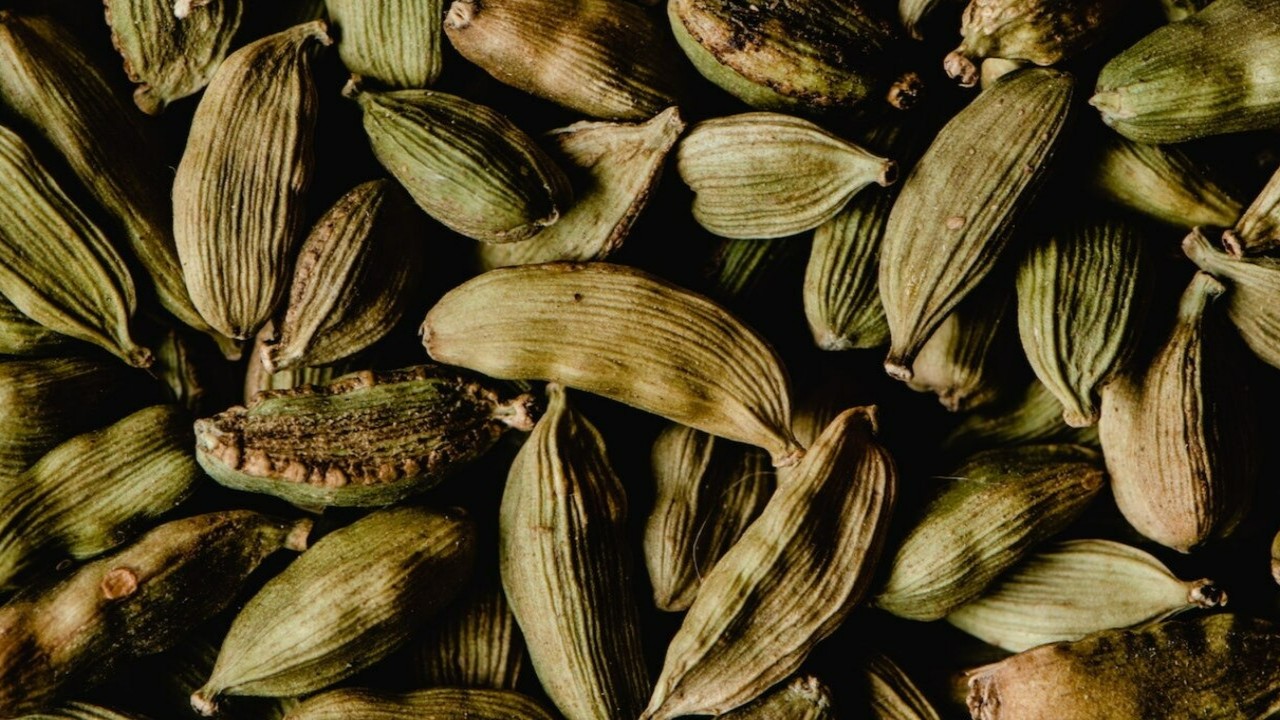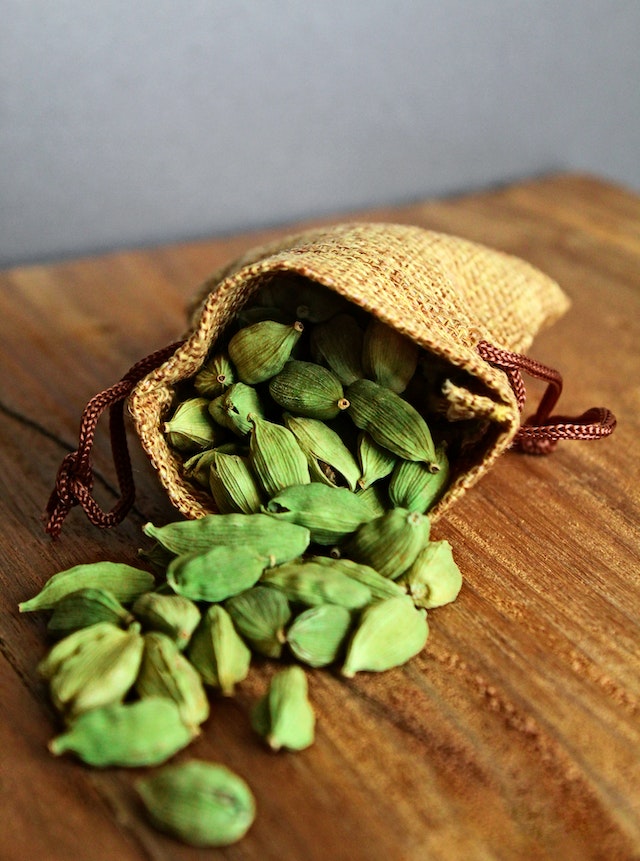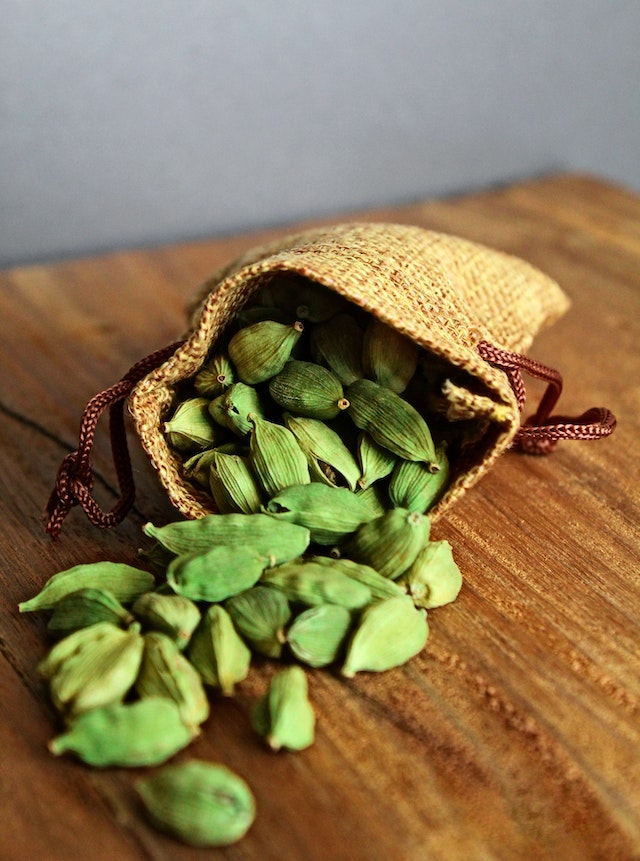Cardamom often hailed as the “Queen of Spices,” is more than just a fragrant and flavorful addition to dishes. This ancient spice, native to the Indian subcontinent and Indonesia, boasts a plethora of health benefits that have been cherished in traditional medicine systems for centuries. Let’s delve into ten remarkable benefits of cardamom, extending beyond its aromatic and culinary uses.

1. Digestive Health
Cardamom is a powerhouse when it comes to promoting digestive health. It stimulates the secretion of digestive enzymes, which aids in the breakdown and absorption of food. Its carminative properties help alleviate symptoms of indigestion, such as bloating, gas, and heartburn. The fiber content in it also supports regular bowel movements, preventing constipation.
2. Anti-inflammatory Properties
Chronic inflammation is a root cause of many diseases, including heart disease, diabetes, and cancer. Cardamom contains potent anti-inflammatory compounds, such as terpenoids and flavonoids, which can help reduce inflammation in the body. Regular consumption of it can thus contribute to lowering the risk of chronic inflammatory conditions.
3. Antioxidant Powerhouse

Rich in antioxidants, cardamom helps combat oxidative stress and neutralize free radicals in the body. This protective effect can slow down the aging process and reduce the risk of various diseases, including neurodegenerative disorders and certain cancers. The spice’s antioxidant properties also promote healthy skin by preventing damage caused by environmental factors.
4. Oral Health
Cardamom has been used for centuries as a natural breath freshener. Its antibacterial properties can help fight against oral pathogens, reducing the risk of cavities, gum disease, and bad breath. Chewing on its seeds or using cardamom-infused mouthwash can be an effective way to maintain oral hygiene.
5. Heart Health
Cardamom may play a role in maintaining heart health. Studies suggest that cardamom can help lower blood pressure by acting as a natural diuretic, promoting the excretion of excess fluid and sodium. Additionally, the spice can help reduce cholesterol levels and improve blood circulation, which are essential for cardiovascular health.
6. Blood Sugar Regulation

For individuals with diabetes or those at risk, cardamom can be a valuable addition to their diet. It contains compounds that can help regulate blood sugar levels by improving insulin sensitivity. This makes it a beneficial spice for managing diabetes and preventing blood sugar spikes after meals.
7. Respiratory Health
Cardamom has been traditionally used to treat respiratory ailments such as asthma, bronchitis, and coughs. Its expectorant properties help clear mucus from the respiratory tract, making it easier to breathe. Additionally, its anti-inflammatory effects can reduce inflammation in the airways, providing relief from respiratory discomfort.
8. Detoxification
Cardamom aids in detoxifying the body by promoting the elimination of waste products through the kidneys. Its diuretic properties increase urine production, helping to flush out toxins, excess water, and salts. This detoxifying effect can also contribute to weight loss and improved overall health.
9. Mental Health

The aroma of cardamom has a calming effect on the mind, which can help reduce stress and anxiety. Inhaling its essential oil or drinking tea can promote relaxation and mental clarity. Some studies also suggest that cardamom may have antidepressant properties, providing a natural way to boost mood and alleviate symptoms of depression.
10. Weight Management
Cardamom can be an effective ally in weight management. It helps improve metabolism and stimulates the body to burn fat more efficiently. The spice also has appetite-suppressing properties, which can help reduce cravings and prevent overeating. Incorporating it into a balanced diet can thus support weight loss efforts.
Incorporating Cardamom into Your Diet
To reap the benefits of cardamom, it’s essential to know how to incorporate it into your daily diet. Here are a few suggestions:
- Tea: Add a few crushed cardamom pods to your regular tea for a flavorful and health-boosting beverage.
- Spice Blends: Use cardamom in spice blends like garam masala or curry powder to enhance the flavor and nutritional profile of your dishes.
- Baking: Incorporate ground cardamom into baked goods such as cookies, cakes, and bread for a unique taste.
- Smoothies: Add a pinch of ground cardamom to your smoothies for an extra kick of flavor and health benefits.
- Rice and Grains: Mix whole cardamom pods into rice or quinoa while cooking to infuse the grains with its aromatic essence.
Conclusion
Cardamom is truly a versatile spice that offers a wide array of health benefits beyond its culinary uses. From improving digestive health and reducing inflammation to supporting heart health and promoting mental well-being, this spice is a valuable addition to any diet. By incorporating it into your daily routine, you can enjoy its aromatic flavors while reaping its numerous health benefits. Whether in tea, food, or as a supplement, it is a natural and effective way to enhance your overall health and well-being.


